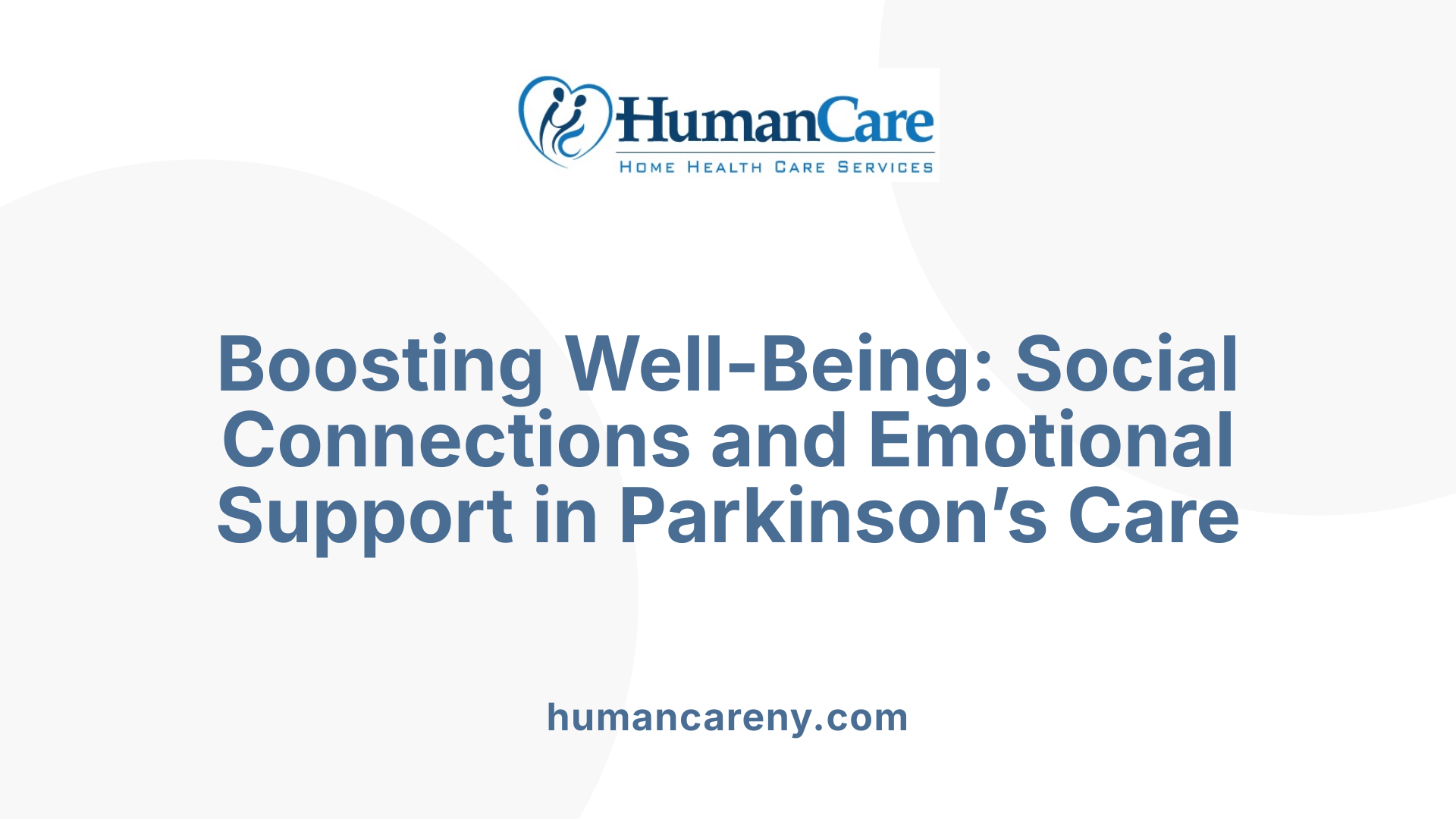Understanding the Crucial Role of Homemaking in Parkinson’s Care
Parkinson’s disease presents progressive challenges that affect mobility, daily activities, and overall quality of life for elderly individuals. Homemaking services play a pivotal role in supporting these patients by providing personalized, compassionate care that helps maintain their independence and dignity at home. This article explores the breadth of homemaking support available and how it meets the complex needs of those living with Parkinson’s disease.
Comprehensive In-Home Care: Meeting the Day-to-Day Needs of Elderly Parkinson’s Patients

Daily Living Assistance
In-home caregivers play a crucial role in helping elderly Parkinson’s patients manage their daily living activities. Tasks such as bathing, dressing, grooming, and using the bathroom can become increasingly difficult due to tremors and motor symptoms associated with Parkinson’s disease. Caregivers approach these activities with respect for the patient’s routine and privacy, fostering dignity and comfort.
Medication Management
Managing medications is central to effective Parkinson’s care. In-home aides and specialized nurses support medication adherence by reminding patients, reviewing medications, educating about side effects, and collaborating with physicians to adjust regimens. This is especially important for those with complex treatments like levodopa–carbidopa intestinal gel or apomorphine infusion.
Meal Preparation and Nutrition
Proper nutrition supports muscle and bone health, which are vital in managing Parkinson’s symptoms. Caregivers assist with grocery shopping, meal prep, and cleanup to ensure patients maintain a balanced diet. Such assistance helps sustain strength and overall well-being, preventing malnutrition and promoting independence.
Mobility Support
Mobility is often affected as Parkinson’s progresses. Caregivers help with walking, stretching, and light exercise programs tailored to improve balance, strength, and flexibility. Physical therapy may also be provided at home to address gait and mobility challenges, helping patients maintain as much independence as possible.
Personal Hygiene Assistance
Hygiene tasks can be tough due to motor limitations. Home health aides assist with grooming, bathing, and dressing, adapting strategies to meet changing needs while prioritizing safety under Parkinson’s-related symptoms like tremors and rigidity.
Together, these comprehensive services from professional caregivers and allied health providers ensure elderly Parkinson’s patients receive personalized support that preserves quality of life and promotes independent living at home.
Specialized Healthcare Support Within Homemaking Services

What is the role of nurses and nurse specialists in home care for Parkinson’s disease?
Nurses and Parkinson’s disease nurse specialists (PDNSs) play a vital role in the home care of individuals with Parkinson’s disease. They conduct comprehensive assessments to monitor symptoms, support personal hygiene and mobility, and provide psychological support. They also offer ongoing communication with patients and families to detect changes early and prevent symptom worsening. Specialized nurses assist with complex medication regimens like levodopa–carbidopa intestinal gel (LCIG) infusions and apomorphine, offering training and troubleshooting at home.
How do physical, occupational, and speech therapies contribute to patient care?
Physical therapy focuses on improving mobility, balance, and strength through tailored exercises, which may be delivered in the home setting to suit patient needs. Occupational therapy helps patients regain independence with daily activities and fine motor skills, supporting continued self-care. Speech therapy addresses common Parkinson’s-related difficulties with speech and swallowing, enhancing communication and safety.
How is medication adherence and complex regimen management supported?
Medication management is central to effective Parkinson’s care. Nurses educate patients about medications, monitor side effects, review adherence, and collaborate with physicians to adjust regimens appropriately. This includes handling advanced therapies such as infusion treatments at home, ensuring safety and proper administration.
What safety assessments and fall prevention measures are implemented?
Falls are a common concern due to gait disturbances and tremors. Nurses assess tremors, frozen gait, dysphagia, and environmental hazards regularly to prevent injuries. Home safety evaluations often lead to recommendations for modifications that reduce trip and fall risks.
How are non-motor symptoms managed by home healthcare providers?
Non-motor symptoms like sleep disorders, urinary issues, constipation, and mental health challenges are addressed through education, symptom screening, and individualized interventions. Nurses also connect patients to social resources and palliative care services to ensure comprehensive support.
The integration of specialized nursing and therapy services into home care creates a supportive environment that maintains patient comfort and quality of life, enabling individuals with Parkinson’s disease to remain safely and independently in their homes longer.
Building a Coordinated Care Network: Family, Paid Caregivers, and Community Resources

How can collaborative care planning enhance support for Parkinson's patients?
Collaborative care planning is essential in managing Parkinson's disease effectively at home. Care plans should be developed jointly with family members, paid caregivers, and healthcare professionals. Regular updates ensure the plan adapts to the patient’s progressing needs. Educating caregivers about Parkinson's symptoms and management improves personalized care and safety.
What types of support networks are beneficial for caregivers?
A strong support network typically includes family members, friends, and volunteers. Engaging multiple caregivers helps share responsibilities and provides backup if the primary caregiver needs relief. Open communication and clear role division within the network prevent caregiver burnout and ensure continuous, coordinated support.
What should families consider when hiring paid caregivers or agencies?
Families can hire caregivers directly or through home health or placement agencies. Key considerations include verifying licensure, assessing the agency’s care planning and supervision procedures, confirming insurance coverage, and checking references. These steps help ensure professional, accountable care tailored to specific needs like personal hygiene assistance, medication management, or therapy support.
How do community resources support Parkinson’s care at home?
Community organizations such as Area Agencies on Aging, local health departments, and faith-based groups offer valuable services like transportation, meal delivery, and light housekeeping. Volunteers often provide companionship and help reduce patient isolation. These resources complement paid care and ease the daily burden on families.
What role does respite care play in supporting caregivers?
Respite care provides temporary relief for family caregivers, reducing physical and emotional stress. Accessing respite services helps caregivers recharge, maintains their well-being, and sustains long-term quality care for individuals with Parkinson’s. Programs funded through state and federal initiatives, like Respite for ME Grants, support this essential aspect of caregiving.
| Aspect | Description | Benefits |
|---|---|---|
| Collaborative Care Planning | Joint development and regular updates of care plans | Personalized, adaptive support; caregiver education |
| Support Networks | Inclusion of family, friends, volunteers | Shared responsibilities; prevents burnout |
| Paid Caregiver Hiring | Direct hire or agency; verification of credentials | Professional, accountable care appropriate to needs |
| Community Resources | Agencies on Aging, faith groups, volunteer services | Additional practical and social support services |
| Respite Care | Temporary caregiving relief programs | Caregiver well-being; sustained quality of care |
Enhancing Quality of Life: Social and Emotional Benefits of Homemaking Services

Companionship and Socialization
Homemaking services often include companionship, which plays a critical role in enhancing the emotional well-being of individuals with Parkinson's disease. Regular social interaction helps reduce feelings of isolation and loneliness, fostering a supportive environment that promotes mental health.
Reducing Caregiver Burnout via Respite Care
Family caregivers frequently face physical and emotional exhaustion. Respite care services offer temporary relief by providing professional care, enabling caregivers to rest and recharge. This support is vital in sustaining the quality of care over time and preventing burnout.
Emotional Support for Patients and Caregivers
Homemaking aides not only assist with daily tasks but also provide emotional support to both patients and their caregivers. This dual support helps manage the psychological challenges posed by progressive illness, improving overall well-being.
Promoting Independence Through Adapted Home Environments
Adaptations recommended by care teams, such as home safety assessments and modifications, help maintain patient independence. Tailored environments enable individuals with Parkinson's to perform daily activities safely, preserving dignity and quality of life.
Transportation Services for Medical Appointments
Transportation assistance is frequently part of homemaking services, helping patients attend medical appointments and therapy sessions without relying solely on family members. This support reduces stress for caregivers and ensures timely access to essential healthcare.
These social and emotional benefits provided through homemaking services contribute significantly to the holistic care of Parkinson's patients by supporting both their physical needs and emotional health.
Planning and Adapting Care for Progressive Parkinson’s Disease
Why Is Early Awareness of Care Options Important?
Early awareness of available in-home care options allows patients and caregivers to plan ahead effectively. Options include help from family, community organizations, and paid care providers. Knowing these resources early helps prevent caregiver burnout and ensures that continuous support can be arranged as the disease progresses.
How Should Care Plans Be Maintained?
Care plans need to be developed collaboratively between patients, family caregivers, and healthcare professionals. These plans should be regularly updated to reflect changes in symptoms and care needs. This ongoing attention helps keep care personalized and effective, supporting the patient’s evolving condition.
Why Educate Caregivers About Parkinson’s Disease?
Educating caregivers about Parkinson’s is vital for providing quality care. Understanding symptoms, medication management, and the emotional challenges of the disease equips caregivers to respond appropriately. Education also promotes better communication and coordination within the care team.
What Role Do Home Safety Modifications and Assessments Play?
Home safety is critical due to risks like falls stemming from gait and balance issues common in Parkinson’s. Regular home safety assessments identify environmental hazards. Modifications might include grab bars, improved lighting, and removing trip hazards to create a safer living environment.
How Does Multidisciplinary Collaboration Benefit Care?
A collaborative approach involving neurologists, nurses, therapists, social workers, and others ensures a holistic approach to care. This team manages motor and non-motor symptoms, provides therapy, addresses psychological support, and coordinates palliative care to enhance comfort and quality of life at home.
Sustaining Independence Through Thoughtful Homemaking Support
Homemaking services tailored for elderly individuals with Parkinson’s disease are indispensable in maintaining their health, safety, and independence at home. Through a combination of skilled healthcare support, coordinated caregiving, and attention to social and emotional well-being, these services help manage symptoms and improve quality of life. Continuous planning and collaboration among care partners ensure that evolving needs are met promptly, ultimately enabling patients to live with dignity and comfort in familiar surroundings.
References
- Getting Outside Help
- Home Health Care for Parkinson's Disease
- Parkinson's Disease Care
- How Home Health Aides Can Help Seniors With Parkinson's
- The role of nurses for patients with Parkinson's disease at ...
- How Liberty's Home Health Care Can Help Patients with ...
- Care Partner Supports | Department of Health and Human ...



